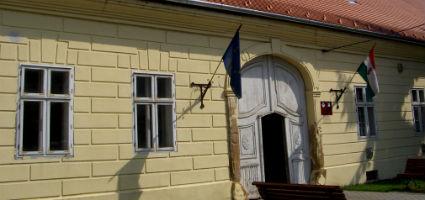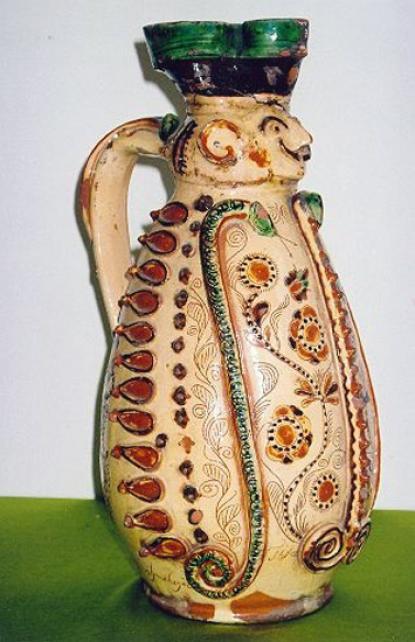2025. April 2. Wednesday
Museum Piece Compilation of the Soma Orlai Petrics Cultural Center - Mezőberény
 |
Address: 5650, Mezőberény Fő út 1-3.
Phone number: (20) 225-4846
E-mail: opsgy@mbereny.hu
Opening hours: Tue, Fri 10-12, Wed, Thu 14-16
|
Museum tickets, service costs:
|
Ticket for adults
|
220 HUF
|
|
|
Ticket for students
|
110 HUF
|
|
|
Ticket for pensioners
|
110 HUF
|
|
|
Guide
|
500 HUF
|
The collection was moved to a well-deserved place, into the building of the old Wenckheim - Fejérváry Castle in March 2002. The first permanent exhibition titled 'The Memoirs of our Past' was opened in the same year.

We, the organizers, tried to present varied material. The documents present the history of the village, along with old photos and postcards. We show ceramics from Mezőtúr and Vásárhely in the showcases, as well as Slovakian, German and Hungarian textiles, small wooden and metal objects.
The Miksa Jug made in Tiszafüred in 1841 and the saltcellar made of horn in 1894 are of extreme importance. We remember the founder of the museum Hentz Lajos and the politician Szabó Árpád, the Minister of Agriculture in 1948.
Orlai Petrics Soma was born in Mezőberény. He was a famed representative of painting. We show three of his paintings.
We also show paintings and archive photos, documents from the beginning of the 1900's, postcards and publishings of the church important from the point of view of local history.

We, the organizers, tried to present varied material. The documents present the history of the village, along with old photos and postcards. We show ceramics from Mezőtúr and Vásárhely in the showcases, as well as Slovakian, German and Hungarian textiles, small wooden and metal objects.
The Miksa Jug made in Tiszafüred in 1841 and the saltcellar made of horn in 1894 are of extreme importance. We remember the founder of the museum Hentz Lajos and the politician Szabó Árpád, the Minister of Agriculture in 1948.
Orlai Petrics Soma was born in Mezőberény. He was a famed representative of painting. We show three of his paintings.
We also show paintings and archive photos, documents from the beginning of the 1900's, postcards and publishings of the church important from the point of view of local history.
